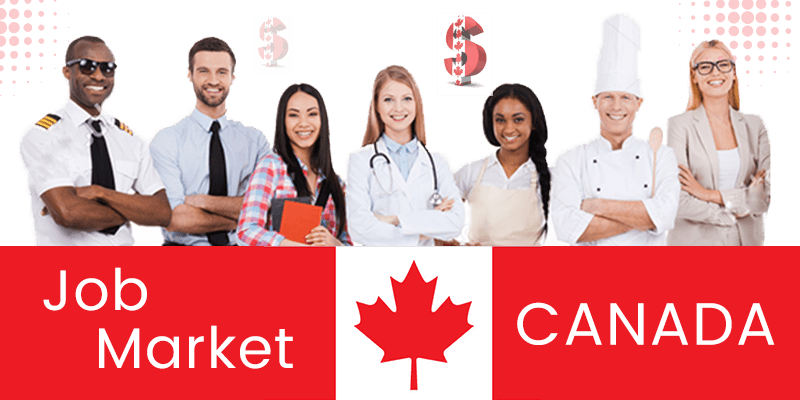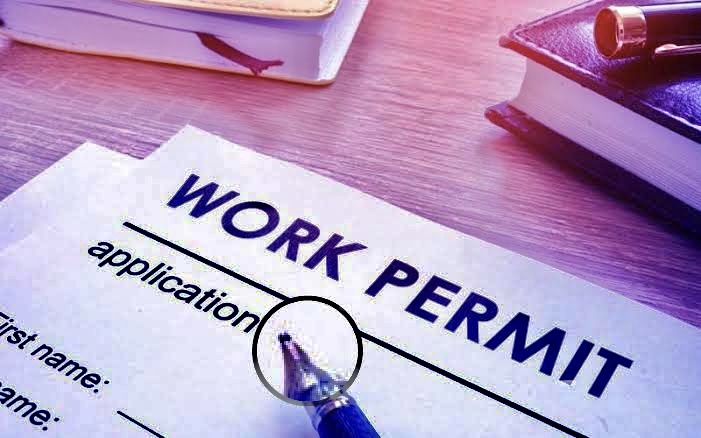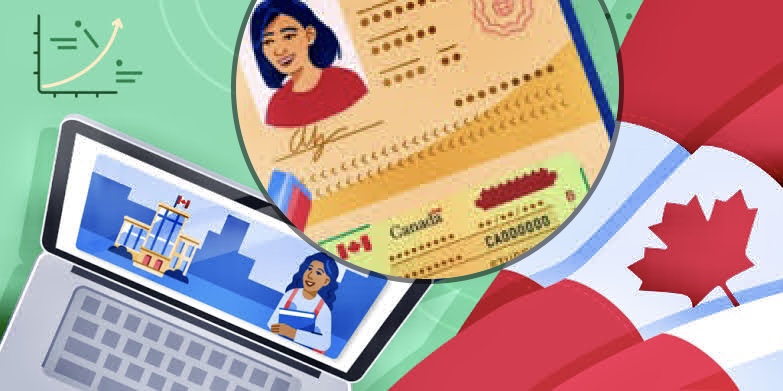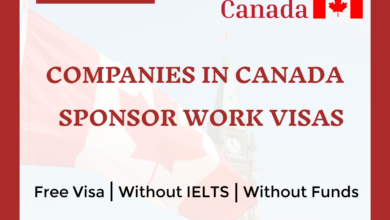Questions You’ll Be Asked At The Airport When You Arrive Canada And How To Answer Them Correctly
You have your Canadian visa, and all of the appropriate documentation, and your heart is set on studying or working in Canada.
The hitch is that the Canada Border Service Agency (CBSA) controls your entry. With one incorrect move, you could end up on the next flight back home.
In this article, we’ll go over some of the most typical Canada immigration questions for students at the airport, as well as provide suggestions and information to help you prepare for your trip.
The CBSA, which stands for Canada Border Services Agency, will greet you when you arrive at a Canadian International Airport. They serve as the primary link between you and Canada.
CBSA officers are trained to examine and interrogate newcomers to Canada. They can read body language and detect any indicators that raise questions about the information you supply.
Being ready is therefore essential.
The CBSA has the right to permit or prohibit your entry into Canada regardless of your background.
Even if you have all of the required documentation and a valid job offer, your decision should not be based only on those criteria.
Numerous competent students, employees, and immigrants have been denied entrance into Canada due to erroneous answers or acting suspiciously at the CBSA checkpoint.
Before we get into the six questions you might be asked when you arrive in Canada for work and how to properly react to them, there are a few things you should bear in mind when in the interrogation room.
Before we get into the six questions you might be asked at the airport if you travel to Canada for employment and how to answer them appropriately, here are some things to keep in mind when in the interrogation room.
6 things that May Positively or Negatively Affect you at CBSA
All it takes to be eliminated is one error. It’s a fact that the sight of the CBSA is excruciating, and the butterflies are ecstatic.
However, these are your secure anchors:
1: Straight-band Brief Responses:
Just respond to questions requested of you; don’t worry about the extras. By doing so, you will be putting yourself in the wrong.
Verify that the responses you’re giving correspond with the data in any correspondence you may have, including application letters.
Make sure the information you give the CBSA matches any personal information you have ever submitted to the US Embassy, as these people share information. Be deliberate in the information you provide at all times.
Human activists and talk twisting, being polite, and being meek are not welcome here.
Don’t offer them a reason to examine your device, which includes avoiding attempting to show them any information from your device because you risk exposing them to something that shouldn’t be seen. Set your phone to airplane mode.
However, if they request to see your device, please do not fight. On that topic, make sure your gadget is free of malware. Completely corporate.
While conversing with the CBSA, keep eye contact and have a calm and firm stance. Tapping your legs, biting your fingers, and rubbing your palms incessantly convey distrust. You are not required to show up while answering a question. Simply remain calm and gentle.
Communication is essential here; replying incorrectly or nearly so is too hazardous. Request a translator if you don’t understand English or French.
Before obtaining a translator, however, ensure that your language proficiency is less than 5.
Otherwise, you have no business dealing with a translator. As a result, you must not exaggerate any of your data to appear qualified.
At any point, be prepared to restate the exact data in your application form or documentation. Know the specifics of your reason for entering Canada, your employer’s specifics, or as a student, your school, scholarship program, and more. Always check over your paperwork to avoid mistakes.
6 Questions You Might Be Asked at the Airport If You Visit Canada, and How to Answer Them Correctly
This area is primarily for students and employees who wish to immigrate to Canada. There may be more questions, but you won’t miss out on these six questions they may ask you at the airport when you arrive in Canada.
Read on to find out how to answer them correctly:
Where will you be attending school in Canada?
You should be aware of the name of the school where you will be studying. Assuming you’ve applied to the University of Toronto, the answer is the University of Toronto.
What program do you attend at this school?
Simply give them the name of the scholarship program in which you are enrolled. Lester B. Pearson International Scholarship, for example. So, the Lester B. Pearson International Scholarship is the answer.
How long will you be studying in Canada?
Only tell them how many years you intend to stay. As an example, one year
Q4: If your program is a two-year program, how will you pay for your tuition in the second year?
This is a trap question; do not answer, “I will be working to sponsor myself in Canada in the second year.”
Regardless of your study permit, it requires you to work part-time. Remember that your application specifies that you have sufficient finances to sponsor your stay in Canada and return.
● As evidenced by my account statement, I have adequate money in my account to support my tuition bill for the second year of my studies in Canada.
● I have family in my home country who give me money every month and will use it to pay for my tuition in my second year of study.
PS: Be prepared to provide evidence for everything you’ve asserted.
Where would you be studying or where would you be residing in Canada?
Give them the address of where you’ll be staying as a tip. If you have reserved accommodation through Airbnb, a shared apartment, or a hotel, please include the address as well as any signed paperwork and address.
Answer: I’ll be sleeping at [the address of your lodge], and here’s proof that you’ve been granted lodging [show them your proof of lodging]. If it’s a shared document, be prepared to make phone calls and offer hard evidence.
Who will be paying your expenditures here, or have you already paid your tuition?
Show them your evidence of payment and source, not your funds. They would be delighted to see them. Show them documents that back up your claims, whether you made a minimum or full payment.
Documents to Keep in One File at the CBSA
Leave your smartphone at home and focus on documents. During the CSBA inquiry, you will be requested to provide proof of anything.
Here are the documents that will save you time; keep them all in one file to appear concise and acceptable:
● IRCC study permit approved Letter
● Proof of tuition fee deposit to the school
● IELTS, TOEFL, or French or English exam scores
● Current proof of funds
● Study plan or statement, not the purpose
● Proof of accommodation
● Proof of home ties (what you have in your home country to which you are returning)
What is the purpose of your visit?
I’m here to work in [specific occupation or field] for [name of company or organization].” For this purpose, I have received a work visa or permit.
How long will you be staying?
Answer: I will be working in Canada for [specific duration, e.g., one year] as stated in my work visa or permit.
What is the name of your Employer or company?
I will be working for [employer/company name], and I have all of the required employment paperwork, such as a contract or offer letter.
What are my job responsibilities and role?
As part of my role, I will be accountable for [briefly defining your job responsibilities and obligations]. This aligns with the job description provided by my employer.
My employer will pay me a monthly salary of [specified amount], and they will cover my housing and transportation expenses, as outlined in my employment agreement.
What are your ties to your homeland?
My family, property, and continuous commitments all bind me to my home nation. I intend to return to my home country after my job assignment in Canada is completed.
Carry all essential documentation, such as your work visa/permit, job contract, and other supporting documentation, to substantiate your responses if necessary.
General Questions asked at the Canadian airport
The first question you’ll probably be asked is why you’re coming to Canada. It is critical to be truthful and concise in your response. If you are arriving as a permanent resident, you must confirm that you want to live and work in Canada. If you are entering Canada on a tourist visa, you must mention the purpose of your visit, such as tourism, visiting family or friends, or attending a conference or event.
You will also be quizzed on your travel history and previous trips to Canada. You must provide correct information about your previous travel, including dates and lengths of stay in Canada and any other countries. If you have previously been denied admission into Canada or another country, you must also provide this information.
Your employment and educational history, as well as your financial condition, will be questioned. This is to determine your ability to sustain yourself and your dependents in Canada. You can be asked about your present job, job title, and pay. You may also be asked about your educational background, such as your degree and where you studied.
You will be questioned about any previous criminal convictions or immigration problems. It is critical to be truthful and declare any previous criminal convictions or immigration infractions, as failing to do so can result in serious penalties, including denial of entrance into Canada.
You will also be asked about your future ambitions in Canada. If you are a permanent resident, be prepared to offer information about where you want to live, your work prospects, and any language or job training plans. If you have a Canada Tourist Visa, be prepared to submit details about your schedule and vacation plans within Canada.
You may be required to supply other paperwork, such as proof of funds, medical records, or a letter of invitation from a Canadian resident, in addition to these questions. It is critical to have the essential papers with you and to be prepared to show them to the border services officer if asked.
What is the Canada Border Service Agency’s (CBSA) role at the airport?
At the airport, the CBSA scans and analyzes individuals entering Canada to determine entrance eligibility.
Is it possible to enter Canada with a Canadian visa and the requisite documents?
No, CBSA officers make the final decision on entrance into Canada based on a variety of reasons.
What are some key aspects to consider when dealing with the CBSA at the airport?
When dealing with the CBSA at the airport, it is critical to:
● Provide direct and short responses with no superfluous explanation.
● Check that your responses correspond to the information in your application or any earlier submissions.
● Avoid fighting with or confronting the officers.
● Maintain steady and calm body language while avoiding suspicious behaviors.
● If you do not understand a question, seek clarification, but only if your language proficiency is below a specific level.
● To avoid discrepancies or confusion, familiarize yourself with the details in your application form and supporting documentation.
When you’re being questioned by the CBSA, you must have the proper documentation to back up your statements.
Because actions speak louder than words, be sure you have valid documentation to back up what you say.
Avoid doing anything that would arouse suspicion during your conversation with the CSBA, such as biting your nails or tapping on something frequently.
Maintain a natural stance and remain calm. I’ve given you information on the six questions you might be asked at the airport when you arrive in Canada, as well as how to answer them correctly.
However, be prepared for more inquiries and conduct your research to ensure that you are well-informed while planning everything.
Don’t forget to carry a good book with you. It can be a useful traveling companion. Best wishes!





